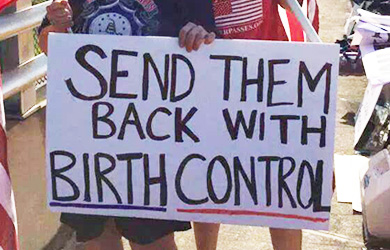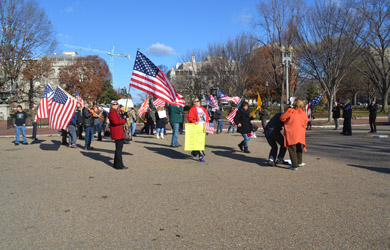When Prince William County, Virginia enacted a crackdown on undocumented immigrants last year, county supervisor John Stirrup complained of “economic hardship and lawlessness” in the affluent D.C. suburb, warning of “a downward spiral, similar to the patterns to be found in the Third World countries these illegal immigrants left.” This spring, news media began to report on an exodus of immigrants and “deserted” businesses that cater to Latinos. Corey Stewart, chairman of the county board and a major backer of the crackdown, called it a “stunning success.”
Now Prince William is finding its anti-immigrant fervor may be giving it a bad reputation—an unfortunate image in the midst of a housing crisis that has hit new suburban developments the worst. From the Washington Post:
In May, the median price of a home in the county was $256,124, compared with $375,000 in May 2007, according to Metropolitan Regional Information Systems. Three hundred more homes were sold this May than a year ago.
Even so, [Stephen Fuller, director of George Mason University Center for Regional Analysis] said it’s going to be a “slow cure,” in part because the county’s actions to curb illegal immigration have “damaged its image as a good place to do business.”
[Resident] Katherine M. Gotthardt said she thinks it’s a waste of time and money for police to check the legal status of arrested criminal suspects. She would rather see the county invest in fire department staffing, affordable housing and schools.
“They don’t seem like they are committed to education and social services,” she said. “It’s going to take them a long time to climb out of this. The perception is that we are backward.”
Stewart, the board chairman, assured residents concerned about the county’s general development that “We are moving swiftly toward the Prince William that people expected.” Stewart is thinking big, hoping to ride the immigration issue to a higher office, but his vision of a Prince William without immigrants may be in conflict with the economic vitality that other residents “expect.”







